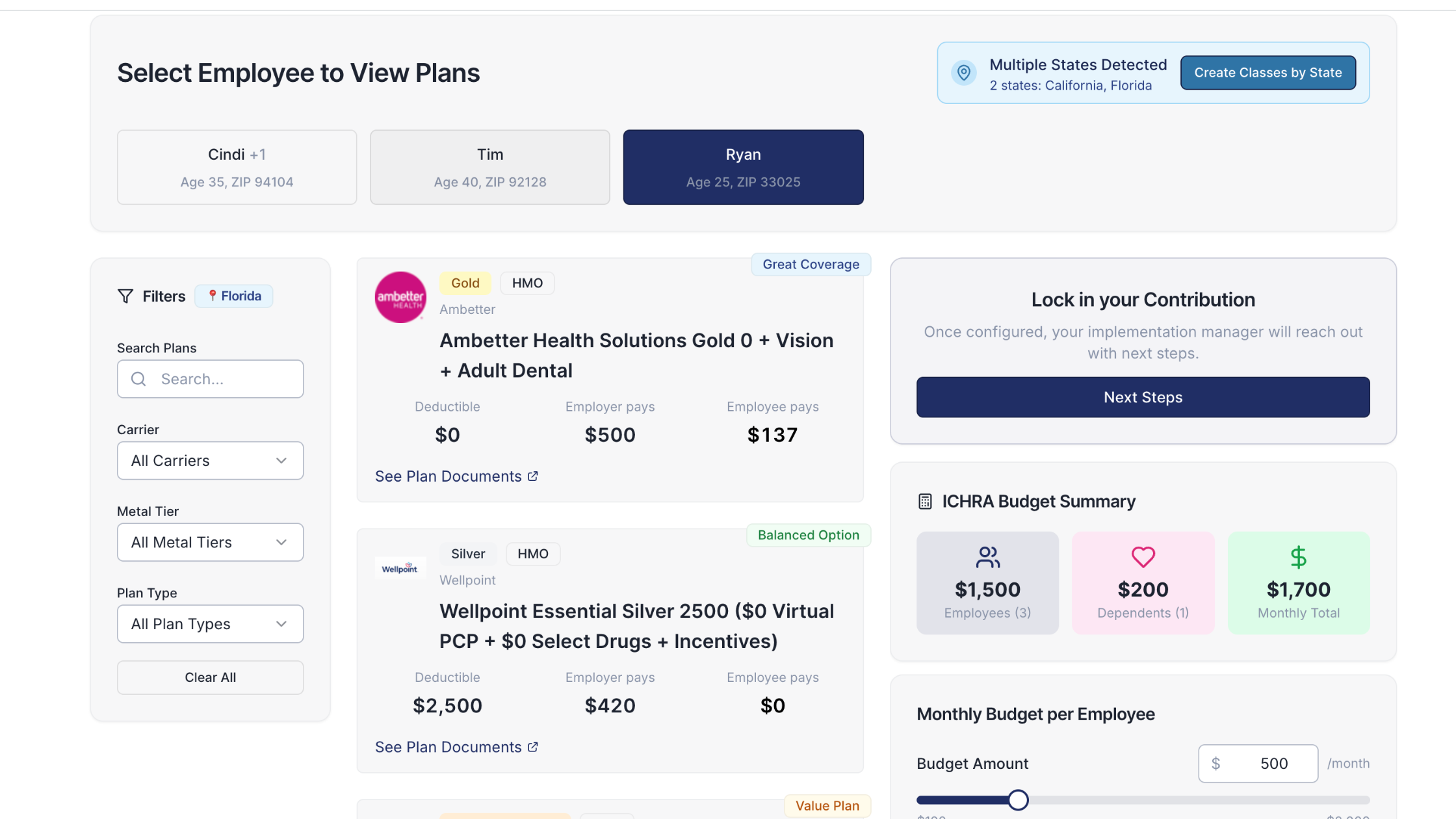SHOP vs. ICHRA: Which Is Best for Your Small Business?

Benefits of SHOP Plans for Small Businesses:
Tax Credits:
The standout advantage of SHOP plans is the potential for tax credits. If eligible, businesses can avail of a tax credit worth up to 50% of their contribution towards employees' premium costs (35% for tax-exempt employers).
Familiarity:
SHOP offers a conventional approach to group health insurance, which many employees are already accustomed to. This can translate to smoother transitions and understanding.
Who should consider SHOP Health Insurance Plans?
- Businesses primed to benefit from significant tax credits.
- Those with a preference for the familiarity of a traditional group plan.
- Enterprises valuing the conventional health insurance model for their workforce.
Advantages of ICHRA for Small Businesses
Flexibility:
ICHRAs empower employers to set aside a specific budget for employees to purchase individual health plans. This approach ensures that employees get a plan most suited to their unique needs.
Predictable Costs:
By defining their contribution with ICHRA, businesses can better forecast their health benefits expenditure year over year.
Employee Autonomy:
Given the freedom to choose, employees often appreciate and are more satisfied with a plan tailored for them.
No Minimum Participation:
One of the standout benefits of ICHRA is that there's no minimum participation requirement. This is especially useful for businesses with a varying number of employees or those that face frequent workforce changes.
Tax Benefits:
While SHOP offers specific tax credits, ICHRA contributions are made pre-tax. This means businesses can make deductions, and these contributions remain non-taxable for employees.
Who should consider ICHRA?
- Businesses aiming for consistent budgeting.
- Companies that prioritize offering diverse health plan options.
- Enterprises that might not qualify for SHOP tax credits or find ICHRA's tax advantages more fitting.
- Businesses that would benefit from no minimum participation constraints.
In Conclusion
Though both SHOPs and ICHRAs have their merits, ICHRA frequently shines brighter due to its adaptability, consistent costing, and its emphasis on individual preferences. That said, businesses positioned to leverage SHOP tax credits and those that lean towards traditional health insurance setups might find SHOPs a more favorable choice.
When making your decision, it's wise to consult with insurance professionals, gauge your business's unique needs, and weigh the individual advantages of each option. Remember, the end goal is to opt for a plan that's not just in vogue, but one that aligns perfectly with your business's aspirations and the holistic welfare of your employees.
You got questions, we got answers!
We're here to help you make informed decisions on health insurance for you and your family. Check out our FAQs or contact us if you have any additional questions.
Explore more related content
What is Venteur
Explore the best human-first Health Insurance platform
Simple, personalized health benefits
Sign up in minutes, define your contribution, and let your employees choose the health plan that works right for them
Integrations to make everything run smoothly
We'll connect with your payroll and finance systems to make deductions and premium payments seamless
Easy onboarding and off-boarding
In just a few clicks, add your roster and make updates on the fly. We'll handle it from there.
Venteur Certified Brokers to help your employees pick the right plan
Our trusted brokers ensure the best outcomes for employees and employers by unlocking health savings and providing unrivaled plan options.
AI-powered plan recommendations to give you confidence while you shop
Backed by 30 years of healthcare data, Venteur’s AI helps employees compare and choose the best plan for their unique situation.
Compliance and reporting because no-duh!
Venteur manages plan administration, reporting, and compliance so you can focus on growing your business.


